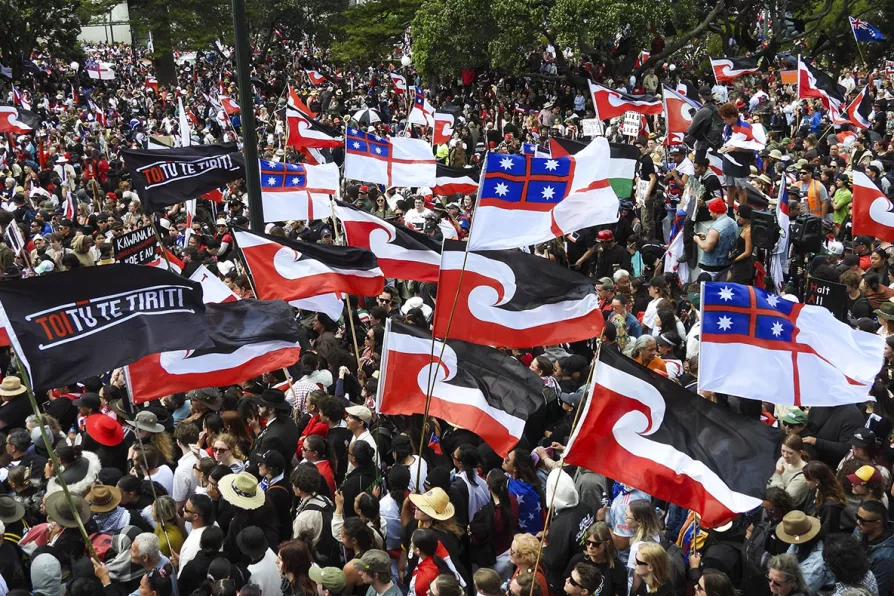Tens of thousands protest against proposed new treaty law in New Zealand

 Thousands of people gather outside New Zealand's parliament to protest a proposed law that would redefine the country's founding agreement between Indigenous Māori and the British Crown, in Wellington, November 19, 2024
Thousands of people gather outside New Zealand's parliament to protest a proposed law that would redefine the country's founding agreement between Indigenous Māori and the British Crown, in Wellington, November 19, 2024
TENS of thousands crowded the streets of the New Zealand capital Wellington today to protest at a law seeking to reshape the country’s founding treaty between the indigenous Maori people and the British crown.
For many of the estimated 42,000 protesters, it was also a celebration of a resurgent Maori language and identity that colonisation had once almost destroyed.
“Just fighting for the rights that our tupuna, our ancestors, fought for,” Shanell Bob said as she waited for the march to begin.
Similar stories













